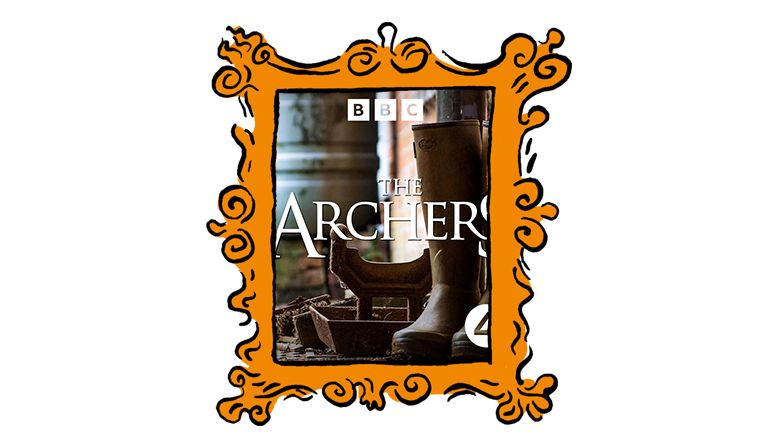Disclaimer. For me as a person. I love The Archers. Every week, I download the BBC’s podcast omnibus of their 72-year-old daily radio soap opera, set amid the farmers, publicans and curtain-twitchers of the fictional English rural community of Ambridge, and listen to it—desperately—as soon as I can. It’s gotten to the point that, in a running joke with my wife, I now refer to Sundays as “Archers Day”, for that is when the podcast hits my feed. She doesn’t seem to find it funny.
The reason I mention this is because of a pleasant surprise I received a few weeks ago, while heading home after work. Podcast feeds don’t tend to throw up surprises—they’re normally about the predictable delivery of predictable content at predictable times—but there, on a Monday, rather than the usual Sunday, was a bonus episode of The Archers. It was called Lark Rise, an Archers-themed spin on Flora Thompson’s classic series of novels about country life in the 19th century, Lark Rise to Candleford.
A week later, in my feed, came a follow-up, simply called Candleford. I started to wonder out loud whether Mondays should also be called “Archers Day”. I’m a blast to be around.
Perhaps I oughtn’t have been surprised. In the weeks leading up to those two special episodes, a copy of Thompson’s Lark Rise to Candleford had been circulating around the residents of Ambridge like a cold; it started with the impulsive teen Chelsea Horrobin who, much to her own surprise, picked up the book and devoured it; then she passed it on to her mother, Tracy, who passed it on to (if I remember correctly) her sister, Susan (who, if I also remember correctly, owned the copy in the first place), before it made its way to Susan’s husband, the pig-farmer Neil… and so on. Within the world of Ambridge, they’d started talking of putting on a candlelit reading of the book to mark harvesttime.
The two special episodes were, in effect, the candlelit reading. Your Chelseas and Tracys and Neils and Jims and Jazzers narrated the book—offering modern asides on the action (“it might be that we’ve now got global positioning systems for more precision-farming…”)—while other Ambridge regulars filled in as the actual characters from Thompson’s work. It was a great, self-referential, multi-textual, cross-cultural bit of radio; you could tell that the adapting writer, Katie Hims, had tremendous fun with it—and so will listeners, particularly if they’re Archers devotees, but even, I suspect, if they’re not. I vowed to include it in this newsletter’s weekly selection of short cultural recommendations (it’s still available on the Beeb’s catch-up platforms).
But then I realised that I wanted to say something more about those episodes, The Archers and soaps in general. You see, I think there’s something almost miraculous about storytelling on this scale: near-daily episodes across seven decades. What a task for the writers and producers involved, who not only have to keep the new storylines coming, but also tie them into years of other storylines, relationships and character work, much of it done by others. What a challenge—and, presumably, privilege—for the actors, whose roles amount to second lives. Sometimes, it is worth marvelling at the things we take for granted in modern culture: if we look across the centuries, this specific demonstration of dramatic ambition is unprecedented.
But it’s more than just scale. There was actually another podcast episode that got me pondering soaps recently, though I won’t name it or its participants here. It’s a very fine podcast, even if one of its guests made a questionable point: that “really, in the Golden Age of Hollywood, sequels weren’t a thing.”
Hm. The brilliant Thin Man series (1934 to 1947) contained six movies and followed the sleuthing couple of Nick and Nora Charles (William Powell and Myrna Loy) through several cases and their marriage. Each one of the main Universal Horror films—say, 1931’s Frankenstein—spawned numerous follow-ups—Bride of Frankenstein (1935), Son of Frankenstein (1939), The Ghost of Frankenstein (1942), etc. And that’s before we get on to the Bowery Boys or Charlie Chan, or Elizabeth Taylor in Father of the Bride (1950).
Movie sequels are not soaps, of course. But we display the same sorts of snobberies towards both. As though they’re necessarily cheap or lazy. As though sequential storytelling is somehow a lesser form, far beneath the great Golden Age practitioners of the self-contained story.
When, in fact, sequels and soaps can offer much that self-contained stories do not. One of my favourite cultural experiences of my childhood and teenage years—of my life, in fact—was watching the TV soap Emmerdale after school with my parents. I watched plenty of films during that time, but few that I can recall with as much clarity and detail as I can those ongoing episodes of television. Spending time with characters, day after day, is not incomparable to spending time with real people—you feel as though you get to know them, their histories, their peccadilloes.
And it means that the one-off specials really stand out. I can still remember, after a hundred disaster movies have faded to mist, when a plane crashed on Emmerdale village, then known as Beckindale, in 1993—killing four regular characters, including Archie Brooks (Tony Pitts), and blinding young Nick Bates (Cy Chadwick). I can still remember the storm of 2003 that crushed Tricia Dingle (Sheree Murphy) under rubble. Just as I’ll remember the Archers version of Lark Rise long after I’d have forgotten a straight radio adaptation. Memory isn’t everything, but it is a lot.
In the end, soaps can be edifying—not just entertaining. In the days since those special episodes of The Archers, much like Chelsea Horrobin, I too have devoured Flora Thompson’s Lark Rise to Candleford in book form. Who else is up for a candlelit reading?










